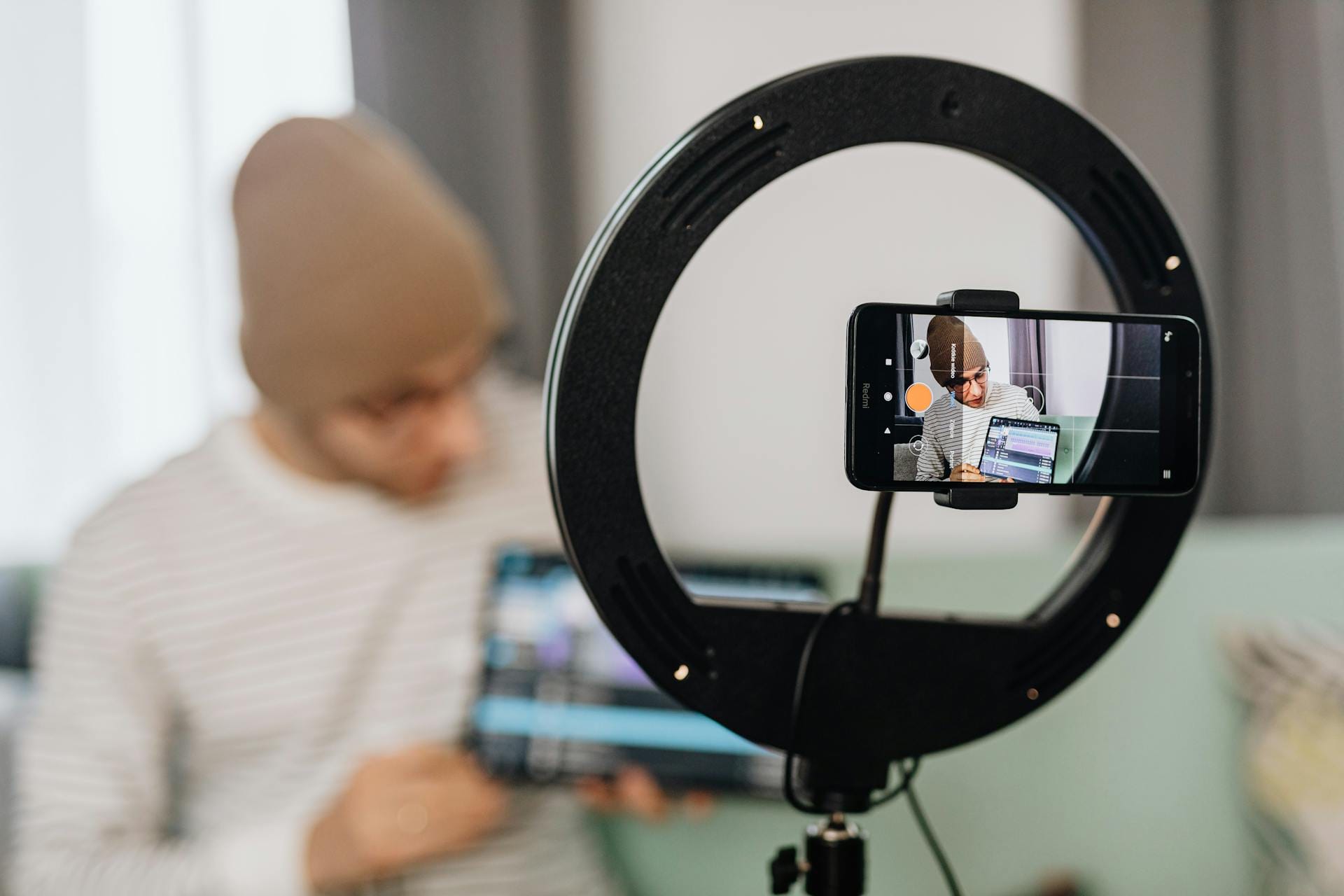
5 simple strategies for recognizing the business idea that’s right in front of you
I have a confession: I’m addicted to entrepreneur origin stories.
It’s the first thing I ask every entrepreneur I talk to: Did you always know you wanted to be an entrepreneur? Where did your idea come from, and how did you get from there to here?
When you know you want to start a business, but you don’t have an idea of your own yet, the process of finding an idea can seem a lot like magic.
At GrowthLab, we’ve helped thousands of entrepreneurs find their business ideas, and I can tell you: there’s something better than magic at play. There are patterns — shared DNA that business ideas have in common.
When you know what the patterns are, you can look at your own life and start to recognize business ideas that have been waiting under your nose — possibly even for years.
In this post, I’m going to walk you through five of these patterns and share examples of actual entrepreneurs whose businesses started that way.
By the time you’re done reading, you’ll have generated a list of 10-15 possible business ideas — all drawn from your own life.
But first, let’s tackle the big question that’s standing in our way:
Why are business ideas so hard to recognize?
This is the question, isn’t it? Why is it that you can know that you want to start a business — but have a heck of a time figuring out what that business actually is?
There are two major culprits here:
- Our own abilities are invisible to us. One of the great paradoxes of life is that we’re often the last person to recognize what we’re good at. We assume that what comes easily to us must come easily to everyone — and we discount the value of our expertise as a result.
- We’re conditioned to believe ideas just “happen.” The bolt of lightning. The apple falling from the tree. The sudden“Eureka!” in the bathtub. Our culture is full of language that, consciously or unconsciously, conditions us to believe that our idea is supposed to come to us, and our job is just to sit back and wait.
The truth: business ideas are notdoled out by some magical Idea Fairy in the sky. If you want a business idea, you have to go out and find it.
The good news: you don’t have to go far. You can start right now. Here are five ways that you can recognize the seeds of potential business ideas that are already planted in your life:
- People already ask for your help
- Someone has said you should blog/vlog/coach about it
- You’ve watched people close to you struggle with it
- You had to figure out how to do it yourself (or still are)
- It’s how you want to spend your time anyway
1. People already ask for your help
Have you ever heard anyone say something like this:
“You give the best dating advice.”
“You’re the only person I trust to help me with computer stuff.”
“Your apartment is always so put together — how do you keep it so organized all the time?”
Because of the “skill blindness” I mentioned above, sometimes the best way to recognize what we’re great at is to pay attention to what the people around us are saying.
Take Shirag Shemmassian. Here’s how he describes the origin of his online business, Shemmassian Academic Consulting:
“I got really good scholarships and fellowships, and then I got into a top graduate program in my field. Along the way people just started asking me for advice, or for help with their applications or to get scholarships and stuff like that, and word of mouth organically grew from there. After a while I was like, ‘Okay, this is a real thing.’”
Today, Shemmassian Academic Consulting is a six-figure business bringing in $400K per year — all built on a skill that other people recognized Shirag had before he even recognized it himself.
DO THIS NOW: Write down 3-5 things that other people ask for your help with. It doesn’t matter how big or small it is. A few examples to help you get started:
- Shopping for deals at the supermarket
- Training a particularly stubborn dog
- Conquering stage fright
2. Someone has said you should blog/vlog/coach about it
Sometimes, people go beyond asking us to help them and tell us: “You should really be sharing this with other people.”
Luke McIntosh was already teaching bass when one of his students told him he should put his lessons on YouTube:
“I had an in-person student who was like, ‘Hey, I like the way you teach, you should put some of this stuff up online.’ He tried really hard to convince me for a good couple of months, always just hassling me about it, like, ‘Put this stuff on YouTube, put this stuff on YouTube.’ So then finally I did that.”
Today, Luke’s YouTube channel has more than 39,000 subscribers, and he’s building and launching online courses to sell to his growing list of email subscribers.
DO THIS NOW: Write down any skills or talents that people have told you you should be teaching to others.
- Your crazy-genius spreadsheet hacks
- Your ready-for-my-close-up makeup tips
- Your astounding system for memorizing medical terms
Want to build a business that enables you to live YOUR Rich Life? Get my FREE guide on finding your first profitable idea.
3. You’ve watched people close to you struggle with it
Inspiration doesn’t only come in the form of other people telling us we’re good at something. Sometimes it flows in the opposite direction: from watching others struggle with it, and realizing that you can help.
Géraldine Lepère traces the origins of her business, French language school Comme une Française, back to memories of her non-native mother’s struggles with mastering the language:
“I knew what it was to be corrected all the time. People ask you where you’re from, and sometimes treat you like you’re stupid, and she’s not stupid. I’ve always been aware of what it is to be the ‘foreigner.’”
When Géraldine decided to start her own business, she remembered her mother, and her own experience living as a non-native English speaker in England, and her slow hunch about language coaching for French students started to come into focus.
These days, Comme une Française is a six-figure online business, and Géraldine has an entire team helping her create high-quality culture and language lessons for Francophiles around the world.
DO THIS NOW: Write down 3-5 challenges that you have helped a loved one overcome. Some examples:
- Job hunting after a layoff
- Dealing with a new dietary restriction after a health change
- Managing anxiety and stress in the workplace
4. You had to figure out how to do it yourself (or still are)
One of the biggest misconceptions people have about a business idea is that it has to be something you’re naturally good at.
But sometimes the opposite can be true: people who had to get good at something are often better at teaching it to others than people who are naturally good at it, because they know what it’s like to have to figure it out.
Take Jenny Lachs, founder of Digital Nomad Girls, an online community for women living and working independently all over the world. She wasn’t a digital nomad–ing expert when she started the group. In fact, she started the group because she needed help figuring the digital nomad–ing thing out:
Today, Digital Nomad Girls has more than 25,000 members — and Jenny has become a trusted source of information on digital nomad–ing because she had the presence of mind to say, “I want to know more about this thing — I wonder if anyone else feels the same way.”
DO THIS NOW: List 3-5 things that you’ve had to workto get good at, or are still trying to figure out, but just haven’t been able to find a resource that you like. For example:
- Eating healthy on a budget
- Growing an audience for your tattoo parlor
- Getting your stubborn three-year-old to eat her vegetables
5. It’s how you want to spend your time anyway
One of our favorite questions to ask students when they’re struggling to come up with an idea is:
What do you do on a Saturday?
Your idea of a well-spent Saturday can tell you a lot about what you want to be doing with your time the other six days of the week. The things you can talk and talk and talk about are the things that you’ve accumulated a level of knowledge (and curiosity) about, which can sustain a business venture for years to come.
This is how Margo Aaron figured out her idea. She was running a completely separate business (one that she hated) when she realized that what she actually loved doing (and, in fact, was already doing all the time) was connecting with other entrepreneurs:
“I started attracting more and more people to me. I was, like, collecting them. The second I found you, I was like ‘You are one of us. We must be friends.’ And I would just keep in touch with them. Literally, that’s it.”
Eventually, Margo’s “collection” of entrepreneur friends led to the creation of The Arena, a “virtual coworking space” for entrepreneurs. And the real kicker: members of The Arena pay Margo to do what she had already been doing for free: bringing entrepreneurs together and helping them solve their problems.
DO THIS NOW: Write 3-5 things that you like to do on a Saturday. Some examples:
- Play a board game with friends
- Master a punishingly difficult riff on the guitar
- Explore your city and track down the best food trucks
Next step: Not just AN idea — THE idea
Generating a list of potential ideas is step one. Step two is narrowing the field down to ONE idea that people will actually pay for.
And just like there are frameworks for recognizing possible business ideas when you see them, there’s a framework for figuring out how profitable any idea is likely to be.
Our Idea Mapping Checklist will help you take the 15-20 ideas you came up with while reading this post and home in on one idea that people will pay for.



